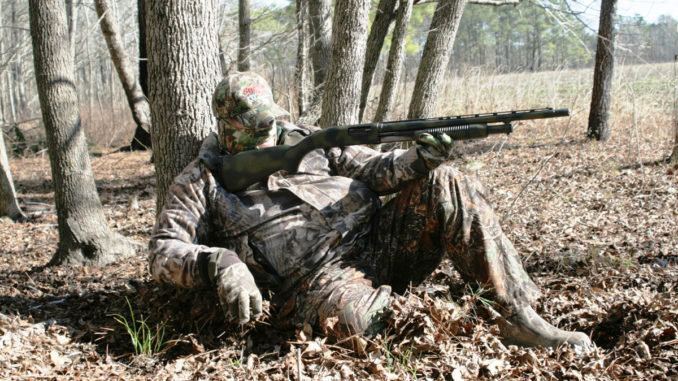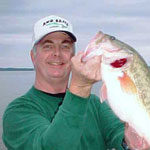
Hunters love it when a turkey plan comes together right off the get-go, but sometimes a wary old gobbler will tease you with booming gobbles, but sit tight on his turf. Instead of scratching your noggin for answers, just simply scratch…literally.
Terry Hiers of Blackwater Hunting Services in Ulmer, S.C., encounters plenty of tough gobblers when guiding. One of his go-to tactics is a subtle approach mimicking natural sounds.
“Old birds often get hushed up when pressured and will stick to their home areas,” Hiers said. “When I make a move on a reluctant bird or simply begin a hunt in an area with abundant turkey sign, I often go the natural route. As I slip in, I don’t walk with a normal gait; I’ll walk slowly, heel to toe, and often scratch my foot back from the toe, making a subtle, scratching sound. Gobblers have exceptional hearing, and mimicking a live turkey has multiple benefits.
“For openers, if turkeys are in the area, natural sounds are not alarming. A walk of a human through the leaves would be an alert trigger,” he said. “This also sets up my next effort. Once I get to the target, I’ll wait as long as 20 minutes before making any calls. Then, I’ll often literally scratch the leaves with my hands, again sounding like a feeding, contented turkey.”
Hiers (803-671-4868) said this sets up the final part of the sequence: the actually calling. With nothing but natural turkey sounds coming from his position, Hiers said when he begins calling, it simply builds on the natural situation he’s been creating.
“Turkeys are social, and while they get real wary when pressured, if I can sound like a turkey waking into an area before I even call, then it sets up my call. In this case, I will stick with the subtle, contented route and scratch out purrs and clucks, and any contented-sounding calls. This is not the time for loud cutts.”
Hiers will use mouth and slate calls, because both create consistent purrs, clucks and other contented turkey sounds.
“This tactic is effective any time of the season, but it’s great during the latter part of the season when working pressured gobblers,” he said.




Be the first to comment